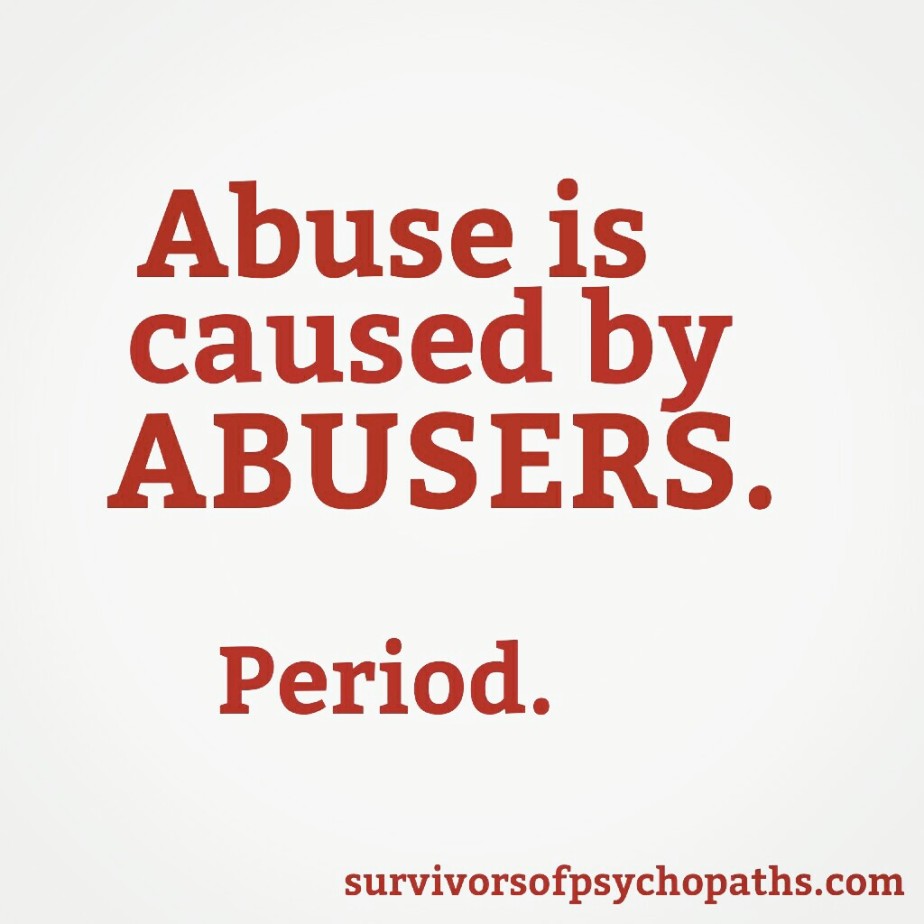The psychopathic relationship cycle is comprised of three stages:
Idealise. Devalue. Discard.
Psychopaths will invariably repeat this cycle with anyone they become romantically involved with. Please bear in mind that their disordered and cruel behaviour is nothing to do with you, or anything that you did or didn’t do. It’s to do with the psychopath and their personality disorder.
IDEALISE

From the very first moment you meet her or him, the psychopath starts to assess you. The whole time you are engaging in conversation with the psychopath they are observing you, mirroring you, and listening intently to what you tell them. You may find that the psychopath takes a flattering interest in you and asks a lot of probing questions about your life. They are very skilled at reading others and as such, they quickly figure out your weaknesses and your insecurities; your strengths and your positive qualities; and your hopes for the future. They suss out any unfulfilled needs you have, and may reveal (false) “personal” details about themselves, thus encouraging you to open up more. They find out everything that they can about you; because it enables them to tailor a false persona that they create specifically for you. Many refer to this as a mask that the psychopath hides behind – which is absolutely true. They deliberately present themselves in a way that they know you will find irresistible. This is why you initially fall for the psychopath -because (s)he seems perfect for you. They embody all the qualities that you want in a partner, and appear to be your mirror image, in a way that is almost too good to be true. They are so similar to you, and so compatible with you, and you can’t believe your luck at having found your soulmate. Psychopaths have lots of these invented personas; and they have different masks that they wear for different audiences.
As you begin to feel closer to the psychopath, (s)he will start to shower you in love and affection. The psychopath places you on a pedastal, flatters your insecurities, and focuses strongly on what they consider to be your best qualities. The psychopath appears to absolutely adore you. The sex is mind blowing and intensely passionate. They text you early in the morning, call you all the time, and maintain near-constant contact with you (be it via text, social media, or some other method when you aren’t physically together). They appear to care deeply about your welfare. You feel like royalty, your confidence is high, you are extremely joyous and happy; and you are completely swept away by this intensely exciting, overwhelmingly romantic, near magical relationship.
The psychopath hurries the relationship along, so that you don’t have much of a chance to take a step back and evaluate the situation. The psychopath engages in “future faking”, which is basically the act of pumping you full of lies and phoney promises about a fantastic future the pair of you will supposedly enjoy together. It’s like a dream come true. This behaviour of bombarding you with affection is a common and effective tactic that psychopaths use called “lovebombing”. You grow accustomed to this amazing treatment, and bond deeply with your fantastic new lover. Unbeknownst to you; this bond is one sided and experienced only on your part. It is called the “psychopathic bond”.
DEVALUE

Once the psychopathic bond is established, and you are hooked on the psychopath, the Devalue stage commences. (S)he does not contact you as much as they used to. Their replies become colder and more curt, and you begin to feel a bit like a chore. They rarely call you by the cutesy pet names they came up with for you. You have been knocked off balance. The psychopath starts to criticise and belittle you and everything about you, even the things that they initially professed to “love” about you. These barbs usually start off as backhanded compliments, and will frequently be passed off as “advice”. The psychopath blames their deflection on you, and you wonder what you can do to fix the relationship and restore the blissful “honeymoon” period of the Idealise phase. There is a heap of uncertainty; and the relationship starts to feel one sided, as though you’re the only party who is working to keep it afloat. The truth of the situation is that when you enter the Devalue phase, the psychopath already has their Discard plans in place; and probably has already secured a new target to replace you. While you’re trying to “fix” the relationship, or “fix” yourself, the psychopath is courting others as they courted you in the beginning. It’s all about the thrill of the chase and the seduction, the excitement of creating a new mask and tricking someone else into a relationship. As far as the psychopath is concerned, your novelty value wore off a while ago, which seems insane, considering that you’re still feeling the thrill of the honeymoon period.
The psychopath will start vanishing frequently, and subjecting you to the silent treatment. The silent treatement is torture. You’ll notice that the psychopath is active online, chatting away to people, but completely ignoring you. You’ll feel as though you don’t exist, and you’ll have no idea where you stand with your abuser. Thoughts that go through your mind may include “has (s)he broken it off with me?” and “I’m not even worth acknowledging”. One of the worst parts of the silent treatment is that it tends to be inflicted upon you for little to no reason; often for a petty or imagined misdemeanour, such as “inconveniencing” the psychopath with your emotions, after they have upset you. Eventually, you learn to never disagree with your abuser, to never question their whereabouts, and to never express your emotions. You bottle up your feelings, and become conditioned to accept more and more mistreatment without protest. You become grateful for the crumbs of their company, and the psychopath will start to manipulate and control you more.
The psychopath will always dismiss your concerns and feelings as “drama”. (S)he will push you to the brink of suicide with their mistreatment and false allegations, and then tell you that you are crazy and unstable when you react to their abuse. If you call them out for blatantly flirting with others, you are branded possessive and paranoid. The psychopath will bully you and antagonize you, and then punish you for the intense reactions that they provoke from you. No matter what they’ve done, it is always “your fault”. You wonder whether there is something wrong with your lover, but then they do something so sweet that you wonder if you’re going mad. You can’t reconcile the horrible things your psychopath is doing with the image of the lovely person they appeared to be initially, and yet it’s hard to recognise them as the abuser that they are, because they don’t raise their hand to you. They may not even raise their voice to you. This is cognitive dissonance creeping in.
This sort of abuse is atmospheric, hard to explain, and near impossible to prove. When it goes on for long enough, you stop trusting your own perceptions and abilities. You become dependent on the abuser. At some point, you start to suspect that the psychopath is dating someone else. Usually, you are right to suspect this. The psychopath is always on the lookout for “fresh meat”, and may juggle many partners at once. They find this exciting. While the psychopath is spending time with you, (s)he is probably giving someone else the silent treatment, and vice versa. By now, you are experiencing extreme emotional neglect and psychological torture. The psychopath makes it plain that they have lost all interest in you, and may be withholding sex, but (s)he continues to keep you around because they enjoy stringing you along and watching you suffer. They may even be complaining about your supposed “mistreatment” of them to their new target, in order to gain their sympathy. Furthermore, the psychopath may be laying down the groundwork for a smear campaign, by telling anyone who will listen that you are unstable and neurotic – perhaps even flashing your desperate text messages as “evidence” of this.
DISCARD

A new target is secured and the psychopath has decided that they have got everything that (s)he can get from you. The psychopath discards you suddenly, in the most callous way that (s)he can. You are left blindsided and devastated by the sudden severing of the relationship. You are in an agony of confused bewilderment; desperately searching for answers to all your questions, and struggling to understand why the psychopath clearly hates you so much. You are shocked. There is no closure, and you can’t tell whether the relationship is really over or if this is another silent treatment. You feel empty, hollowed out, completely torn apart and shaken. You obsess about it; trying to work out when, how, and why everything went so disastrously wrong. You oscillate between hating yourself and hating your psychopath.
Your attempts to contact the psychopath are fruitless: you are now dead to him or her. It’s as though the two of you never had a relationship at all. You may see, or hear about, your psychopath bragging all over social media about how happy they are with his new target. This is gutwrenching. You are now one of their many “crazy” exes, and (s)he will happily slander your name all over town. This is called a smear campaign; and unbeknownst to you, this may have been in the works for a while. Thus, when the relationship is over, and you try to convince people that the psychopath is the crazy one, nobody will believe you…because the psychopath has been drip feeding them lies about your mental state for weeks or months. The more you plead for understanding, the more you are perceived as a disturbed individual. Your suffering is indescribable, and yet nobody seems to understand. You know that this relationship wasn’t a normal one, but the confusion that you feel in this moment is nothing compared to what happens next. Which is:
Learning about psychopathy, and coming to understand that the love of your life did not love you; and in fact: isn’t even capable of love.
Copyright © 2015 Survivors Of Psychopaths. All Rights Reserved.





 Psychopathic abuse kills.
Psychopathic abuse kills.